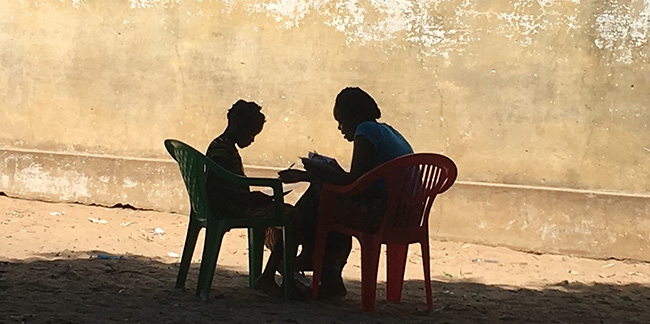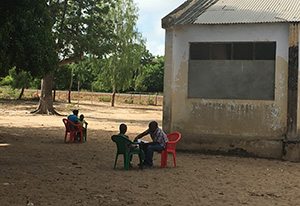Vamos Ler! (Let's Read!) Mozambique

Despite a twofold increase in primary school enrollment in Mozambique over the past 15 years, educational outcomes remain largely inadequate. For instance, in 2014, only 6.3% of students achieved basic reading competency by the third grade (UNICEF, 2016).
To respond to Mozambique’s challenges with literacy teaching and learning, the U.S. Agency for International Development funded a five-year program, Vamos Ler! (Let’s Read!). The program’s goal was to strengthen the Mozambican government’s ability to ensure that Grades 1 to 3 students in Nampula and Zambézia provinces can achieve grade-level fluency and comprehension in local languages. The Vamos Ler! program provided evidence-based technical and material assistance to improve early grade literacy instruction in three local languages, Emakhuwa, Elomwe, and Echuabo. For this program, AIR was a subcontractor to Creative Associates International and led two key areas of work:
 Language Mapping and Transition Studies
Language Mapping and Transition Studies
The aim of the language mapping study was to understand how well Grades 1 and 3 children speak and understand each language they report to know, and how that matches the language(s) they are expected to learn in school. Findings from this mixed-method study were used to inform which languages may be most effective for initial literacy instruction, whether children can effectively learn initial literacy skills in a language other than their mother tongue, which languages should be used for Early Grade Reading Assessment (EGRA) administration, and the role language plays in interpreting the results of EGRAs and impact evaluations.
The language transition study provided an empirical basis for effective transition (or addition) of language(s) from the mother tongue/local language to Portuguese in language instruction. The findings led to recommendations on the level of local language literacy skills required for students to transition to learning to read in Portuguese as a second language. As such, these study results support the structuring of an effective bilingual literacy program in schools.
Standards and Benchmarks
AIR engaged local stakeholders in defining student standards and benchmarks for three local languages and the transition to Portuguese by developing teacher standards for early grade reading then testing, revising, and validating both the new teacher and student standards.
Photos of language mapping in Nampula Province. Credit: Kaitlin Carson
